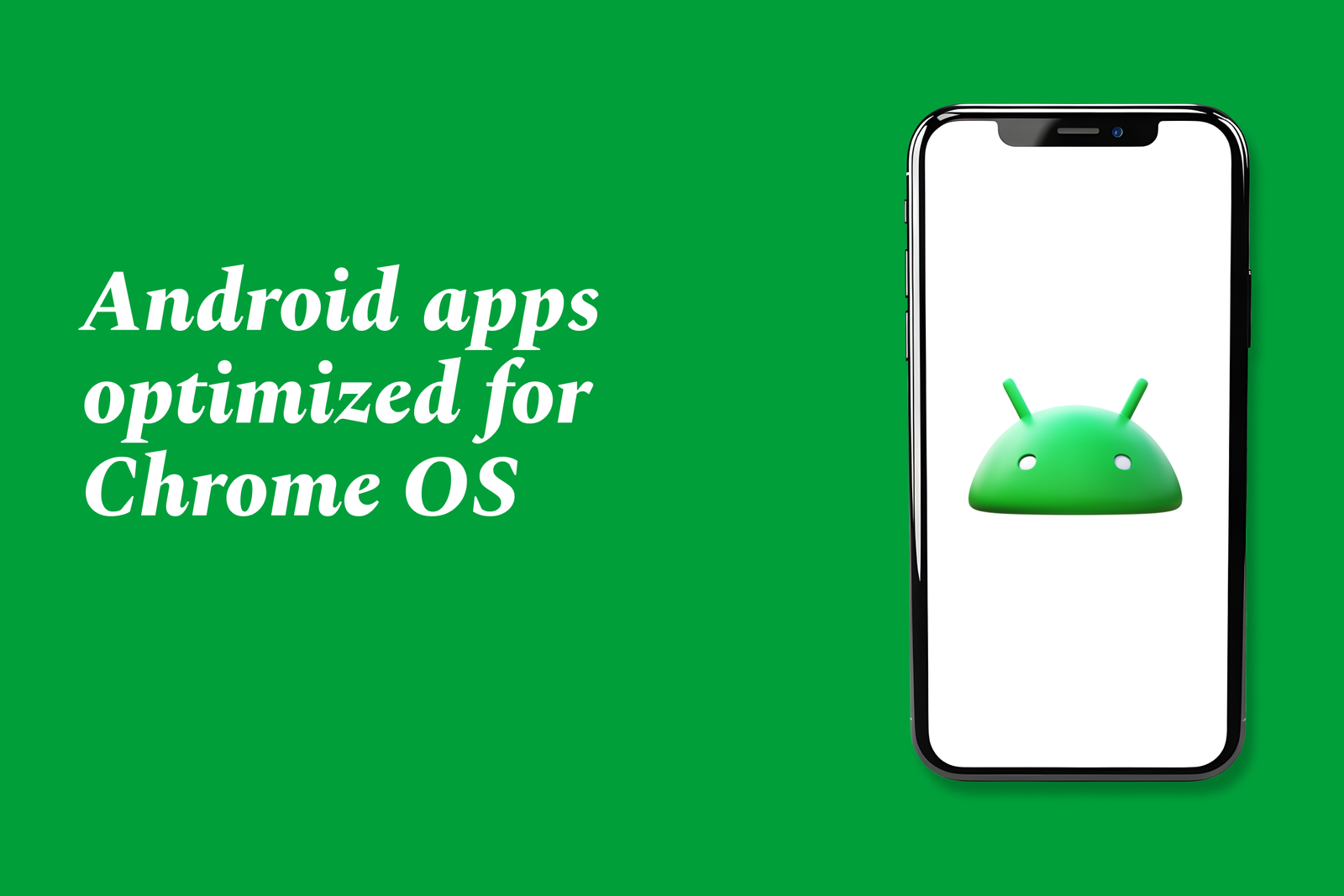Android Apps Optimized for Chrome OS
Android apps optimized for Chrome OS are specially designed or adapted to run seamlessly on Chromebooks, offering enhanced performance, better window management, and full keyboard and mouse support, providing a smooth and versatile user experience beyond typical mobile apps.
Android apps optimized for Chrome OS
1 ) Introduction to Android Apps on Chrome OS
Android apps have become an integral part of the Chrome OS ecosystem, enabling users to access a vast range of mobile applications on Chrome OS devices. While Android app support started rolling out in 2016, full compatibility is mainly available on devices launched in or after 2019. This move enhances the versatility and productivity of Chromebooks and related devices.
2 ) Device Compatibility and Support
Android apps and Google Play Store availability depend on the hardware platform and device compatibility. Google is continuously evaluating more devices for Android app support.
Most devices released from 2019 onwards are Android app compatible. Older devices, particularly those before 2019, may not support Android apps or have limited support.
Many popular Chromebook, Chromebox, and Chromebase models from manufacturers such as Acer, Asus, Dell, and CTL have stable Android app support, even for some models launched before 2019.
Some devices have Android app support planned but are yet to receive it.
3 ) Advantages of Using Android Apps on Chrome OS
Access to a vast app ecosystem beyond traditional Chrome web apps.
Enhanced functionality for users, including productivity, multimedia, education, and gaming apps.
Optimization specific to Chrome OS ensures better user experience with window management, input methods, and performance enhancements.
4 ) Developing Android Apps for Chrome OS
Developers are encouraged to optimize their Android apps to leverage Chrome OS capabilities fully.
Google provides guidelines and tools to build apps that offer seamless experiences on Chromebooks, including design recommendations, input compatibility (mouse, keyboard), and window management.
Support for Chrome OS specific features such as multi window rendering and camera orientations helps enhance user experience.
5 ) Getting Started and Resources
Users can install Android apps via the Google Play Store on supported Chrome OS devices.
Google offers training, tutorials, and documentation to help developers create or adapt apps for Chrome OS.
Building adaptive apps is highlighted, enabling seamless experiences across devices like phones, tablets, wearables, and Chrome OS.
6 ) Conclusion
Android apps optimized for Chrome OS significantly expand the functionality and appeal of Chromebooks and similar devices. With growing support across hardware models and developer tools, Chrome OS continues to evolve as a versatile platform suitable for both casual users and professionals.
https://justacademy.in/news-detail/how-flutter-is-dominating-cross-platform-app-development
https://justacademy.in/news-detail/new-features-in-flutter-4.0-stable
https://justacademy.in/news-detail/trending-flutter-plugins-in-2025
https://justacademy.in/news-detail/flutter-developer-roadmap-after-2025
https://justacademy.in/news-detail/flutter-open-source-tools-roundup
Related Posts
In 2025, top Angular libraries offer modern, feature-rich components and tools for building dynamic web apps. From powerful data grids to low-code platforms like UI Bakery, these libraries enhance development speed, UI design, and scalability, making them essential for Angular developers.
Migrating from AngularJS to Angular 17 involves gradually upgrading your app by running both frameworks together using tools like ngUpgrade, rewriting components in TypeScript, and adopting Angular’s modern architecture to enhance performance, maintainability, and long-term support.
Angular state management tools help organize and handle app data efficiently, improving scalability and maintainability. Popular options include NgRx for robust, RxJS-based patterns, and newer Signal Store solutions that offer simpler, reactive approaches integrated tightly with Angular’s latest features.
RxJS in Angular empowers developers to manage asynchronous data streams with powerful operators like `forkJoin`, `combineLatest`, and `zip`. Mastering these key operators in 2025 is essential for building efficient, reactive applications that handle complex event sequences seamlessly.
Angular performance optimization in 2025 focuses on improving app speed and responsiveness by using techniques like OnPush change detection, lazy loading, efficient data caching, and AOT compilation. These practices reduce load times, enhance user experience, and ensure scalable, fast Angular applications.
In 2025, Angular remains preferred for large-scale, enterprise apps with its robust, all-in-one framework, while Vue attracts developers seeking simplicity and fast development for smaller projects. Both frameworks excel, with choice driven by project needs and team expertise.
Angular Signals are a new reactive primitive in Angular 16 that enable fine-grained, efficient change detection by automatically tracking dependencies and updating only affected parts of the UI. They simplify state management and boost app performance, revolutionizing Angular's reactivity model.
Angular interview questions to prepare in 2025 focus on core concepts like components, directives, data binding, routing, and dependency injection, along with TypeScript mastery and latest Angular features to ensure strong practical knowledge for building scalable, efficient web applications.
AngularJS reached its official end of support in January 2022, meaning no further updates or security patches. To ensure app security and performance, developers should consider migrating to modern Angular versions or seek third-party long-term support options if immediate migration isn’t possible.
The Angular Roadmap 2025 highlights upcoming features focused on improving developer experience and performance, including zoneless Angular, Signals integration, enhanced Forms, async data handling, improved HMR, and expanded Angular Material/CDK enhancements, driving modern, efficient web app development.










